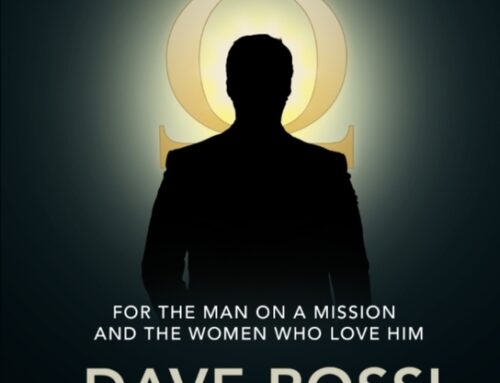‘Money is freedom’: Older women face hurdles with investing; these savers figured it out
January 26, 2025
Cheryl Waters, 74, was getting ready for a trip to Puerto Rico to celebrate her wedding anniversary with her second husband when she took a step back to enjoy the moment.
“I never thought that I would be able to retire,” the former public schoolteacher said. “If anyone had told me I was going to live like this, I would not have believed it.”
Waters retired at age 70 with a healthy nest egg — no mean feat, given that she had to start over with investing after a divorce and a few bad financial decisions left her retirement savings near zero when she was in her 50s.
Her situation echoes that of many older women. According to a recent study by Fidelity Investments, two-thirds of women in the boomer generation started investing in their 50s or later.
These late starts, combined with the persistent gender wage gap over the course of a career, result in women having roughly 30% less income in retirement than men, according to a 2020 Brookings Institution study. Women are also less likely to be employed in workplaces where a pension plan is offered.
Waters started her retirement investing slowly, letting her employer-based retirement account accrue passively and not paying close attention. Then, after conversations with an older colleague, she decided to take a more active stance and met with a financial planner recommended by that co-worker.
Waters started out by asking him which stock she should sell to pay off her consumer debt. Rather than give a specific answer, Waters said, the financial planner emphasized the bigger picture and the need to keep growing her income. His advice: “I would probably just have to get a second job for a while.”
Cheryl Waters, 74, meets with her French language teacher, Stephanie Digby, through video chat. Thanks to her careful saving, Waters is planning a trip to Paris in a couple of months.
Rosem Morton for The Washington Post
Waters did just that, taking on extra tutoring jobs for several years and applying for an interest-only mortgage, giving her extra money each month that she used to diversify her investing strategy. When she turned 66½, she filed for Social Security but continued to work, using the surplus cash to beef up her retirement accounts and start a 529 education savings plan for her grandkids.
Her careful saving has paid off. She will follow her Puerto Rico trip with an excursion to Paris in a couple of months — and she’s going to fulfill one of her most important goals: “I will be able to leave money for my grandkids.”
Mind the gap
Nick Booth, an independent financial planner who has worked at one of the largest firms on Wall Street, says he often encounters a “knowledge and confidence gap” between older and younger women who come to him for advice. The former have been saving in a workplace account, but “as they approach retirement, they start to get a little more serious,” he said.
Another hurdle that Booth cites is that women are less likely to have access to wealth advisers because these professionals typically make a percentage off the total assets under management — where higher-earning men dominate. For example, the Wall Street firm where Booth formerly worked would pay its advisers only for work with clients who had a minimum of $250,000 in assets — a threshold that later rose to $1 million.
Booth’s broader strategy with new clients is to start off by asking which underlying decisions led them to where they are today. “I wish I would have started earlier” is the most common regret, he says.
One of Booth’s clients, 66-year-old Marianne Nishifue, hadn’t planned on investing in the stock market as a self-employed consultant. But when she was in her 50s, her sister died in an auto accident, leaving behind four young-adult children.
Nishifue knew she needed a bigger financial cushion to help take care of her nieces and nephews, so she followed a friend’s advice and began trading stock options. She found that her business background and penchant for in-depth company research complemented her intuitive knack for sensing whether a stock was worth buying.
By understanding the company owner, she said, she can feel “the passion and clarity and vision” that she would want to see before investing in that firm.
However, over time, her foray into stock trading turned stressful — “I was trying to create my own index fund,” she quipped — so she turned to the advice site Personal Finance Club and its affiliated tool Nectarine, an online database of fee-only financial advisers. There she found Booth.
Over time, Nishifue says, her investing style has evolved: She now takes a more holistic view of her portfolio and steers clear of the emotional highs and lows tied to the performance of individual stocks.
No more ‘shame’
Lisa Croke, 50, also got a late start to investing after her marriage ended seven years ago. With $20,000 in consumer debt, $70,000 in student loans, no savings and very little knowledge about the basics of retirement planning, she decided she needed to put together what she refers to as “her team.”
“I want to be a good example to my kids,” she said.
The team included an accountant as well as a financial coach to help navigate questions in Croke’s first corporate job, such as explaining what “employer matching” means and discussing options for high-yield savings accounts — both terms she had been unfamiliar with.
With their help, she paid off her credit card debt — a journey she later detailed in a podcast with her financial coach.
Then, once Croke started having surplus money to invest, she opened a Fidelity investment account as well as an account with Acorns, an app that rounds up a user’s daily transactions and invests the difference automatically. She describes the Acorns platform as a “nonthreatening” way to get started with investing.
“I want to leave a legacy,” she said. “I’m going to do it in the world, and to do that, money is freedom, money is power.”
Croke also turned to social media for financial research, citing Tori Dunlap, known by the handle @HerFirst100k, as someone who inspired her.
Croke says she has come a long way since she started her journey a few years ago and is glad she can “decouple” her investment strategy from the guilt she had once felt about not understanding money.
“I can talk to someone about finances,” she said. “I don’t have shame anymore.”
Search
RECENT PRESS RELEASES
Related Post




